Creators Who Hated Adaptations Of Their Own Work

Seeing your brainchild come to life in a Hollywood movie is kind of an honor ... right? Or at least it's pretty cool? Well, a bunch of creators think Hollywood adaptations of their work are neither. They see those adaptations as insults to their original vision, and they can't stand them. For example ...
Andrew Lloyd Webber Hated The Cats Movie, Too
Like all of us, Andrew Lloyd Webber thought the Cats movie was a travesty. He didn't hold back at all, saying, "The whole thing was ridiculous." Unlike all of us, though, he thought the problem came down to one thing: director Tom Hooper not wanting anybody involved with the original show to be involved with the movie. Which honestly sounds pretty surprising, since it implies that, somehow, the movie's problem was not being faithful enough to the musical. Let's look at why that makes absolutely no sense at all.
First and most important, the movie is about a bunch of bipedal cat-like beings doing elaborate dance routines (and somehow, that description doesn't even start to do justice to the movie's weirdness). There's almost no plot, and the whole thing is a collection of songs in which every cat introduces themselves. So far, so bizarre. But ... that's precisely what the stage version was like, only they put makeup and fake hair on the actors rather than turn them into nightmare cat-human hybrids through visual effects. In other words, the movie had the same vision as the musical but rendered with cutting-edge CGI.
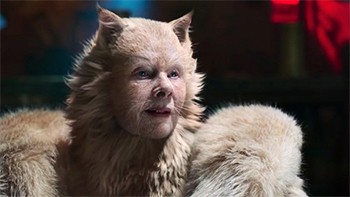
And, sure, there were some narrative differences, but they were the kind you'd have to put in a mega-budget Hollywood movie. The biggest change is that the movie make Victoria the protagonist, giving her an arc that takes us through all the bits where cats introduce themselves through song. Sure, a Broadway musical can be just a bunch of twee Victorian cats singing about who they are, but a movie whose budget is nearly in the nine figures has to give at least lip service (whisker service?) to cinema conventions just so the people shoveling all that money feel a little bit safer.
So, all in all, it feels pretty hard to imagine a big-budget Cats movie that could be more faithful to the original musical.
And that wasn't the only thing Webber hated. He also slammed the movie for not sticking to the original original vision -- that is, T.S. Eliot's (the guy who wrote Old Possum's Book of Practical Cats, the poetry collection Webber based Cats on). Specifically, he says James Corden's performance as Bustopher Jones was "absolutely un-Eliot." Now, Webber spoke with Eliot's widow when he was making the musical, so he might have a better idea than most people of what Eliot would want, but this still feels like a stretch. Webber basically lifted the poems straight from the book and set them to music -- all of Eliot's lyrics are right there in the performance, in other words. So, as long as you're not changing those lyrics, no performance can really be called "un-Eliot" -- it's just another interpretation of the same lyrics.
But maybe wanting the guy who came up with dancing bipedal cats to make sense is asking too much.
The Co-creators Of Avatar: The Last Airbender Think The Live-action Version Was A Total Waste
One of the few things the English-speaking world agrees on is how bad the movie The Last Airbender is. Still, none of those people will ever approach the depths of Avatar: The Last Airbender co-creators Bryan Konietzko and Mike DiMartino's hatred. The two don't even like talking about the movie at all, presumably seeing it as a traumatic event that's best forgotten. And it all started with the studio somehow shutting them out from the very beginning, even though they knew the property better than anybody on the planet.
When the ball got rolling on a live-action version of Avatar, DiMartino and Konietzko wanted to do it, but the studio didn't entertain the idea for a second and got somebody else: M. Night Shyamalan. As soon as he came on board, DiMartino and Konietzko offered to help, but their input was totally ignored. So they had to stand on the sidelines and watch as their characters got, in their words, "dragged through the mud" (and infamously whitewashed). The result was a deep loathing for every last frame of the movie.
You might think that maybe they'd at least consider it as a valuable demonstration of what not to do with the franchise, but apparently, it doesn't even have that scrap of value for them. When having lunch with Dante Basco, the voice of Prince Zuko in the animated series, they told him to never see the film. If they could erase their memories of everything connected to that movie ever happening, it seems like they'd run, not walk, to do it.
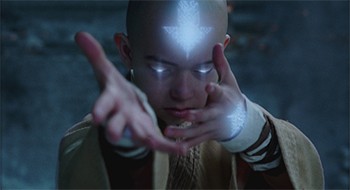
But, hey, at least the odds of live-adaptation screwing the duo a second time are pretty sli-- ah, shit.
Iron Man Comic Writer Bob Layton Thinks Comic Books Are Like Opera And Hollywood Types Are Philistines
Bob Layton's Iron Man stories formed a lot of the base that the movies took material from, and he wasn't too happy with the results. To be fair, there were some things he was pretty pleased with: RDJ was basically perfect as Tony Stark, in his eyes and ... that's essentially where his praise ends.
The sequels are where things got really bad, according to Layton. He felt they shoehorned armored villains to sell toys, casting aside Iron Man villains like Spymaster and the Ghost. Layton also says they made Iron Man 2 villain Justin Hammer "a clownish, moon-walking, sycophant groupie of Tony Stark."
And Iron Man 3 is even worse -- that's the movie in which the hyper-brilliant Tony Stark, who basically MacGyvered the original Iron Man suit out of old batteries and dead scorpions or whatever they have in the desert, somehow can't get his inventions to work anymore.
These points might be more easily digestible if Layton didn't make them with so much ire that you expect to see froth bubbling at the edges of your display as you read his post. It reads like one man's gradual descent from politeness and reason to wild, incoherent rage, except from the actual storyteller rather than a rando fanboy.
As Layton tells it, comic books are like opera, and Hollywood people are uncivilized fools who try to stage those operas in "a deserted alleyway" with actors wearing their regular everyday clothes. This will not do, he continues, stating comic book fans are "like traditional opera lovers," and they "want their operas pure." To cap things off, he finishes his post by ranting in all-caps about Tony's apparent incompetence in Iron Man 3.
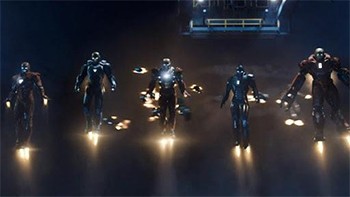
Do you think Michael Bay's Transformers movies are mindless escapism we shouldn't expect too much from? Well, at least one person strives to hold those movies to a higher cinematic and narrative standard: Transformers cartoon writer David Wise.
The thing is, in Transformers: Dark of the Moon, Optimus Prime kills Sentinel Prime because that guy betrayed Optimus Prime and his crew.
That might read as run-of-the-mill robot violence to you -- basically, the kind of story beat you need as an excuse to throw millions of dollars' worth of robot-on-robot action on the screen -- but not to David Wise. "Optimus has got to be Abe Lincoln. He's got to have malice toward none," says Wise. Wise claims that "Abe Lincoln doesn't just up and bust a cap in a dude's ass because he was a turncoat," which might be correct, but robots who aren't bloodthirsty ( ... oil-thirsty?) don't sell as many movie tickets.
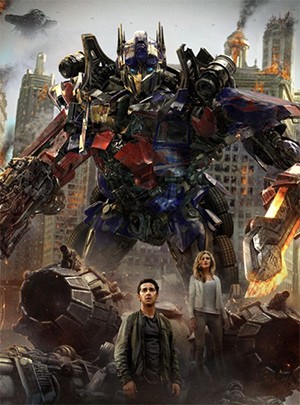
That's not all that Wise is bothered about, either. He says the cartoons had way more character and story than the movies do -- which isn't a very high bar, but that still sounds damning even for a Michael Bay movie. And despite those complaints, when asked about the Transformers' sudden surge in popularity, he says he wishes there was some way he could make money off of it (as someone who wrote 15 out of the cartoon's 65 episodes, he apparently gets nothing from the movies). Which, at least, is a critical position we can begin to understand.
Bugs Bunny co-creator Chuck Jones despised Space Jam
Even if you don't know Chuck Jones' name of the top of your head, but you've definitely seen his work since pop culture owes a massive debt to it. He co-created characters including Bugs Bunny, Daffy Duck, and Porky Pig, along with solo creating Roadrunner and Wile E. Coyote plus a ton of other characters. Basically, he's a huge part of what made Looney Tunes work and why everyone gets Bugs Bunny references over 80 years after the character was created. And he deeply, deeply despised Space Jam.
As someone who had made Looney Tunes stuff for over 40 years, he claimed the story just made no sense. Bugs Bunny would never have needed anyone's help to save the world, and he definitely wouldn't have asked the other Looney Tunes characters to pitch in even if he did, and he definitely, no-way-no-how, wouldn't have needed Michael Jordan's.
Also, crucially, Jones insisted, "with the utmost confidence" that Porky Pig would never utter the phrase, "I think I wet myself."
In other words, he apparently felt they had taken his legacy and treated it with the care and decorum usually given to a welcome mat.
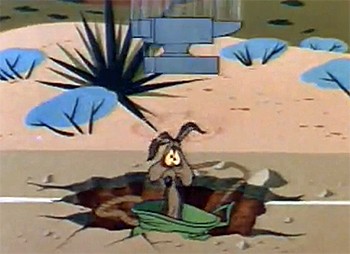
And he pretty much said so in public, too ... to his detriment. According to Jones, in the late '90s, Warner Bros. had asked him to give a speech at a dinner in which he'd praise the company's animators for having brought his classic characters back to life. In his view, apparently, this would be like praising a necromancer for turning your loved one into a zombie. So he said things to that effect in his speech, and it did not go over well: Warner Bros. security escorted him off the lot. We're not sure which is a bigger dick move -- kicking the creator that put your studio in business off the premises or asking him to make a grand speech without even caring about what he thought of the matter.
Top image: Paramount Pictures